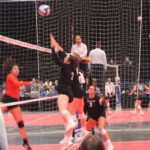What do Ernest Hemingway, JK Rowling, Margaret Mitchell and Mark Twain have in common? They have had one or more of their books questioned, also known as challenged books and banned in some libraries.
Banned or challenged books are those where schools or public libraries have found issues with the content for various reasons, like period accurate racism, witchcraft, or violence. Iowa Senate File 2198 as proposed by Jake Chapman, R-Adel, would allow parents to sue school districts for disturbing books that are deemed obscene.
However, banning books interrupts free thought by preventing a book that has opposing views being read. Katherine Pike a Kirkwood student studding library science said, “I think banning any book is a terrible decision. People should be able to read whatever they wish. If parents don’t want their children reading specific books, I feel that it’s their responsibility to decide that for their own children, rather than insisting on a total ban for all students.”
She added, “I don’t think any books should be banned. It’s a parent’s responsibility to monitor what media their children are consuming and make sure that the child is only consuming media that the parent deems appropriate. Every parent has a different definition of appropriate, so it’s ridiculous for some people to try to impose their own prejudices on everyone.”
Every September, the main campus library has a display to highlight popular, as well as less well-known books that have been banned for one reason or another. Books like the Harry Potter series, “The Great Gatsby” by F. Scott Fitzgerald, and John Steinbeck’s novel “The Grapes of Wrath” have all been banned from libraries.
Banned books are continuing to be an issue in Iowa, with many legislators looking to bring the bill back into consideration next session.

Jessica is in the Digital Arts program and previously graduated with an AA in Liberal Arts and a Bakery Certificate. She enjoys cooking, hiking with her dog, Daisy, taking pictures and spending time with her family.
Categories: Campus News, Local News, News










